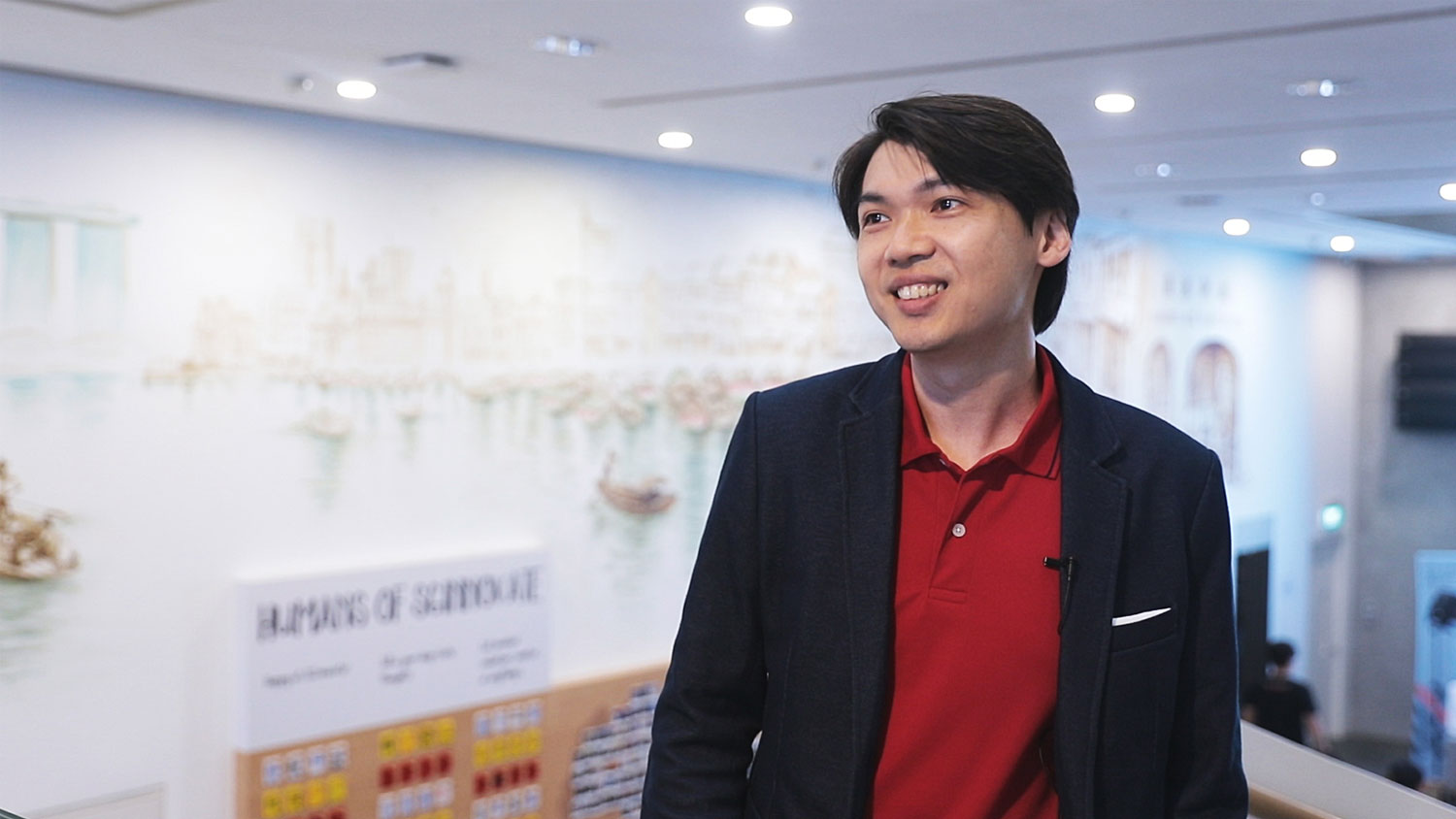Deep Tech Daredevil: Entrepreneurial Scientist Benjamin Tee
Thu, 08/01/2019 - 12:00
If your future robot assistant comes sheathed in human-like skin that can stretch, flex, sense the environment and self-heal, you may have Singaporean electrical engineer Benjamin Tee to thank.
Tee, President’s Assistant Professor of Material Sciences at National University of Singapore, is one of the world’s authorities in electronic skin, which is made of polymers and embedded with sensors. Tee imagines a world with smart digital devices and where humans who have lost their limbs are able to regain their sense of touch in their artificial replacements through electronic skin. He cites as inspiration (surprise, surprise) Star Wars, specifically the scene in which Luke Skywalker is fitted with a new prosthetic arm.
For some reason I always thought that the ability to sense the world is a very critical part of being alive. So in some sense the computers, digital electronics also need to sense the world to be smarter.Benjamin Tee
Tee left Singapore in 2003 on an EDB scholarship to study electrical engineering at the University of Michigan, Ann Arbor, with the intention of returning home after to serve his bond. His interest in academia was piqued only in his final year when he enrolled for an undergraduate research programme, during which he worked on plastics-based transistors, which are far less common than the usual silicon-based, inorganic transistors.
After overcoming some administrative hurdles, Tee managed to switch to an A*STAR scholarship, paving the way for his eventual master’s and PhD in electrical engineering, completed in 2014. At Stanford he studied under Zhenan Bao, a pioneer in plastics electronics, and was the first PhD student there to develop electronic skin.
Since then, Tee and colleagues have progressively refined the technology. His Singapore research group’s latest publication, on the February 2019 cover of Nature Electronics, is on “self-healing electronic skins for aquatic environments”.
At Stanford Tee also met his eventual co-founders of Privi Medical, the biomedical startup that aims to commercialise some of Tee’s work, beginning with “Instalief”, a disposable device with “instant cold compression technology” to treat haemorrhoids (roughly three in four adults will suffer from haemorrhoids at some point of their lives). 1 Privi Medical has identified China as its beachhead market for the device, which has already obtained FDA clearance.
RELATED ARTICLE: DEEP TECH ENTREPRENEURIAL SCIENTIST DEAN HO
Tee says electronic skin is essentially a platform technology that can potentially cut across many sectors.2 Tee’s varied ideas—from improving senses in space to soothing bums on earth—are, he says, partly a product of the time he spends daydreaming: “a state of imagination running wild, and it helps to come up with creative ideas.3
In the Deep Tech Daredevils: The Rise of Entrepreneurial Scientists Insights Paper, we interviewed founders and experts who shared their journey from lab to market. Download the full report to read more on their motivations, views and experiences.
1 Journal of pain research. “Treatment of uncomplicated hemorrhoids with a Hemor-Rite® cryotherapy device: a randomized, prospective, comparative study.” 16 Jan 2014. [https://www.ncbi.nlm.nih.gov/pmc/articles/PMC3897353/]
2 To be clear, the electronic skin technology itself is still in development. In the meantime, however, Tee and team are exploring market opportunities that leverage their interim learnings: the development of Instalief, for example, was only possible because of their newfound knowledge on stretchable; soft; and bio-compatible materials.
3 Channel News Asia, “ASEAN’s Next Generation Leaders (ANGeLs), Episode 1: Benjamin Tee”, 30 Dec 2016.[https://www.channelnewsasia.com/news/video-on-demand/ asean-next-generation-leader/dr-benjamin-tee-singapore-7825256]
Trending Posts
- From satellites to startups, Singapore’s space sector is pushing new frontiers
- How leaders should rethink cybersecurity strategy
- How to Future-Proof a Career in Deep Tech? Start here.
- The future of fusion energy: What will it take to bring the power of the stars to earth?
- Keeping satellites safe: How CYSAT Asia 2026 is tackling space cybersecurity






